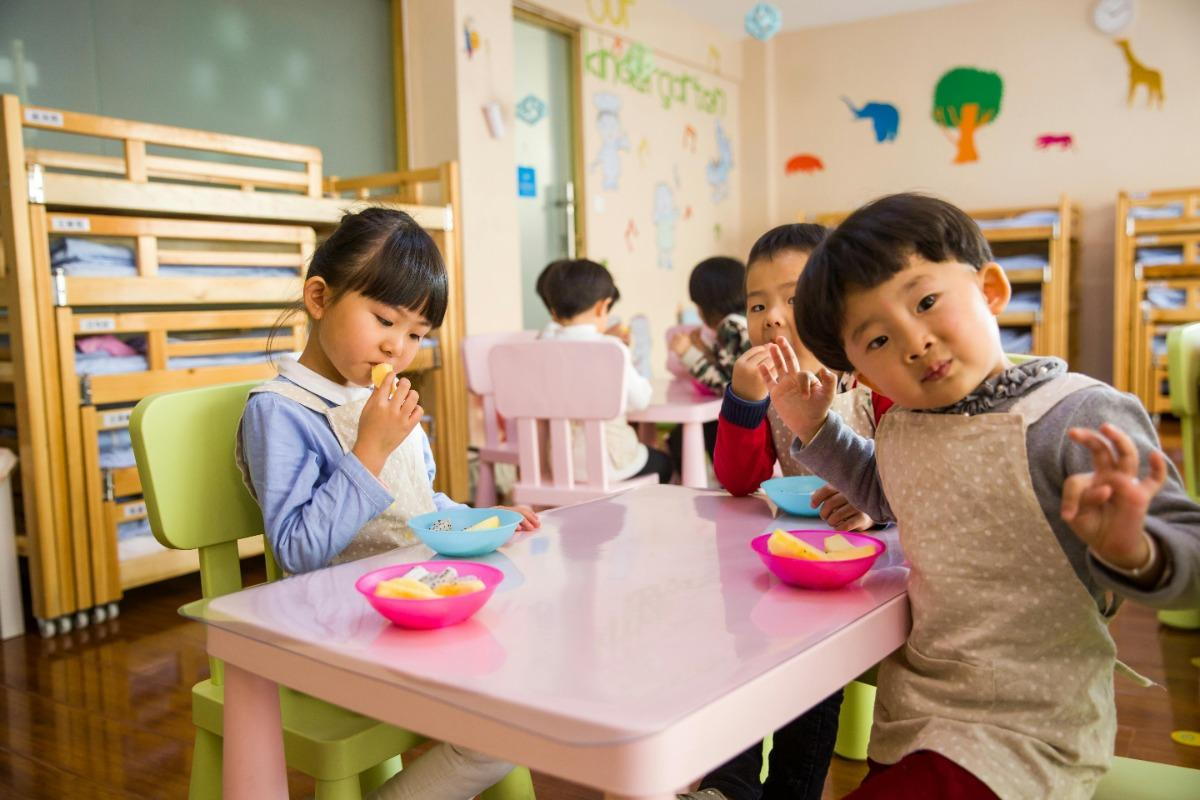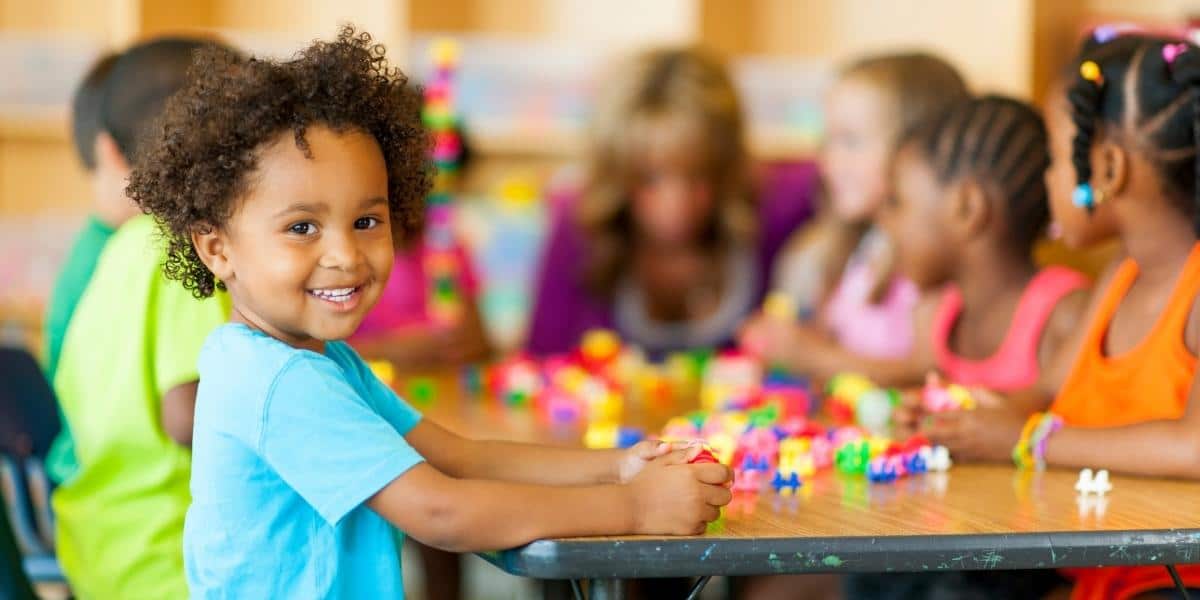The Ultimate Guide To Finding Quality Daycare North York Programs
The Function of Day Care in Fostering Social Abilities and Early Discovering
Daycare acts as a significant setting for kids, assisting in essential social interactions that promote very early understanding. In this structured setting, kids involve with caregivers and peers, establishing essential communication and teamwork abilities. As they browse play and various activities, they discover to settle conflicts and develop psychological knowledge. Comprehending the subtleties of these communications discloses the extensive impact day care carries a youngster's growth, shaping their future partnerships and scholastic readiness. What specific skills do children acquire in this setting?
The Significance of Social Interaction in Daycare
While numerous parents acknowledge the importance of early youth education, the duty of social interaction in day care is typically underestimated. Daycare settings offer kids with vital possibilities to involve with peers, promoting necessary social abilities. During these formative years, children find out to browse different social dynamics, such as sharing, cooperation, and conflict resolution. Connecting with varied age groups and characters enhances their capacity to adjust to different environments and establish empathy in the direction of others.

Building Communication Abilities Via Play
Play functions as a powerful medium for youngsters to develop critical communication skills in daycare settings. Via various play activities, kids involve in conversations, express their thoughts, and learn to listen to others. Role-playing games, for example, motivate them to utilize language in different contexts, promoting vocabulary development and understanding of social cues.

Additionally, storytelling during playtime enables kids to communicate concepts and feelings, assisting them develop narrative skills and self-confidence in their verbal expressions. In general, play not just functions as a delightful leisure activity however also as a vital platform for developing the interaction abilities needed for effective social interactions in later life.
Urging Cooperation and Teamwork
Collaboration and synergy are essential skills that children can cultivate in childcare settings. Through various group activities, such as constructing projects or joint games, children find out to share obligations and pursue usual objectives. These communications cultivate an understanding of the value of paying attention to others, working out roles, and jeopardizing when essential.
In daycare settings, caregivers frequently develop opportunities for children to participate in synergy by encouraging them to take part in team tasks. This not only assists children establish social bonds yet likewise cultivates a feeling of belonging and area.
As they navigate these cooperative experiences, children obtain beneficial understandings into the characteristics of dealing with peers. They discover to value diverse viewpoints and identify that each member contributes distinctively to the team initiative. Ultimately, these early lessons in cooperation and synergy lay the foundation for healthier partnerships and reliable collaboration in future social and academic settings.
Structured Knowing Activities and Cognitive Advancement
Structured learning tasks play an integral duty in cultivating cognitive advancement in children (Child Care Center). These activities, which check this site out include puzzles, storytelling, and hands-on experiments, More Bonuses promote essential reasoning and problem-solving skills. In a daycare setting, structured discovering motivates youngsters to engage with their peers, enhancing their ability to procedure information and comprehend various ideas
With directed play and interactive jobs, youngsters create fundamental skills such as numeracy and literacy. For circumstances, tasks focused around numbers can aid children comprehend mathematical concepts, while storytelling improves language acquisition and understanding. Additionally, structured knowing allows educators to analyze developing progress and dressmaker tasks to individual discovering demands.

Incorporating a varied array of organized activities not just advertises cognitive development but likewise prepares youngsters for future scholastic success. By providing a balanced environment that promotes exploration and query, daycare programs play a vital role fit the cognitive capacities of young students.
Cultivating Emotional Intelligence and Confidence
Emotional knowledge and self-confidence are crucial components of a child's growth, enhancing the cognitive skills fostered with structured knowing activities. In daycare settings, youngsters are provided with possibilities to express their emotions and take part in social communications, which are critical for constructing psychological awareness. Via guided play and group activities, kids find out to recognize their sensations, recognize those of others, and establish compassion.
Furthermore, communication with caregivers and peers helps to grow self-esteem and strength. Positive reinforcement and motivation from grownups empower youngsters to take dangers and face obstacles, cultivating a sense of accomplishment. As they browse social dynamics, children build self-confidence in their capacities to interact, team up, and settle problems - Childcare Near Me. This caring atmosphere enables for the steady advancement of psychological intelligence, which is crucial for future social connections and total health. Therefore, day care plays a significant role in promoting both emotional intelligence and self-confidence in young kids
Regularly Asked Inquiries
Just How Can Parents Pick the Right Childcare for Their Youngster?
Parents need to think about aspects such as location, personnel qualifications, security criteria, curriculum, and examines from other moms and dads when selecting the right daycare for their kid, guaranteeing it straightens with their youngster's developmental demands and family values.
What Age Is Ideal for Beginning Day Care?

Just How Does Daycare Influence Children's Habits at Home?
Daycare typically positively affects kids's behavior in your home by enhancing social abilities, promoting independence, and encouraging emotional guideline (Childcare Near Me). Consequently, kids may exhibit improved communication and cooperation, causing more unified family members characteristics
Exist Any Type Of Drawbacks to Daycare Participation?
Yes, there are disadvantages to day care attendance, consisting of possible separation anxiousness, exposure to health problems, and irregular caregiving. These aspects can impact a kid's emotional well-being and adjustment in the house, influencing total family characteristics.
How Can Parents Support Social Abilities Discovered at Day Care?
Moms and dads can support social abilities found out at childcare by facilitating playdates, urging cooperative tasks, modeling favorable interactions, reviewing feelings, and strengthening sharing and interaction in your home, therefore enhancing their kid's social growth and self-confidence.
Daycare offers as a significant environment for young kids, facilitating essential social interactions that promote early learning. Day care settings give youngsters with indispensable opportunities to engage with peers, promoting important social abilities. Play serves as an effective tool for kids to build vital communication abilities in day care setups. In childcare setups, youngsters are supplied with possibilities to express their feelings and engage in social communications, which are vital for developing psychological understanding. Daycare frequently favorably influences youngsters's actions at home by enhancing social skills, advertising freedom, and motivating emotional law.